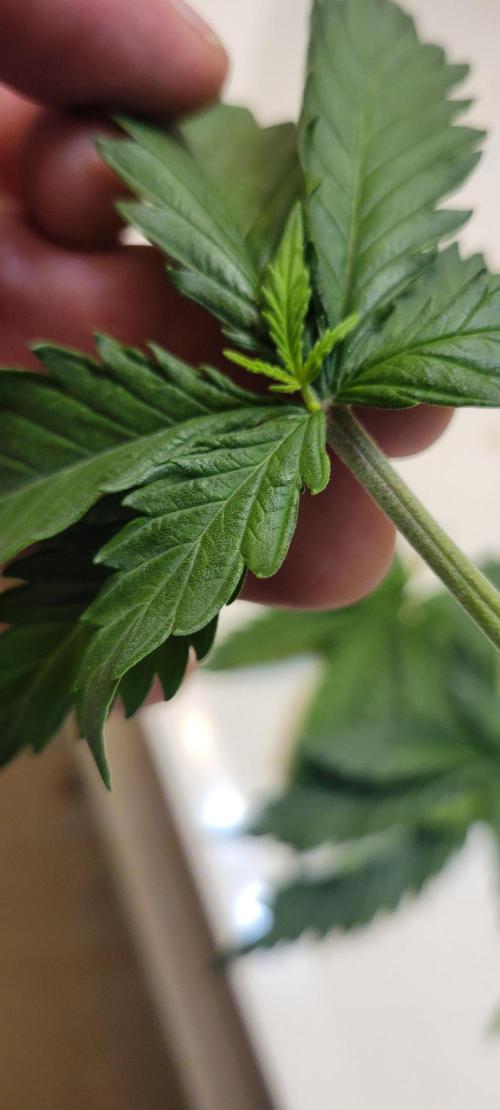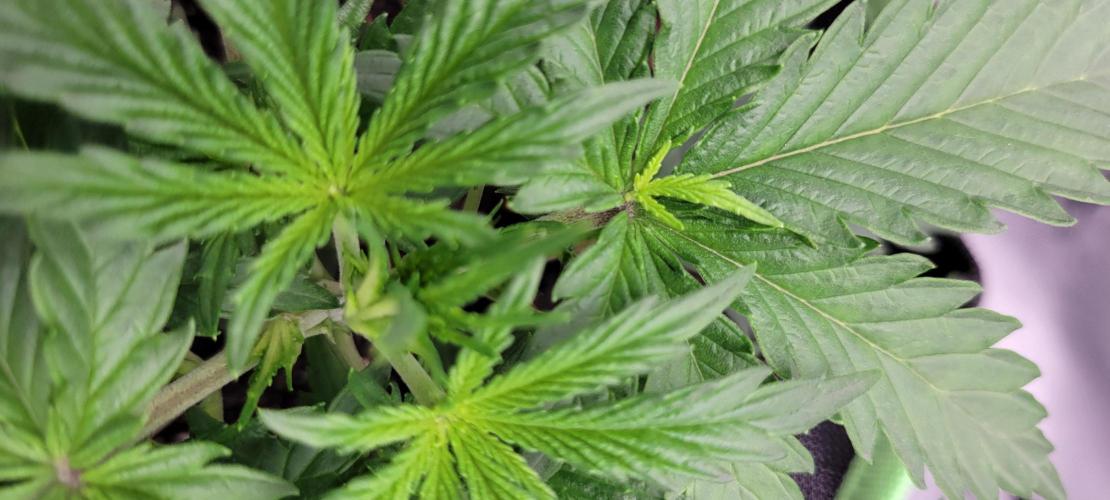The Grow Awards 2026 🏆
Odd leaf growth Sour Jealousy auto fast
PavementPunkstarted grow question 8mo ago
I noticed some small leaves growing from the center of a couple fan leaves was wondering if its a mutation or the plant is stressed etc?
Solved
likes
Ultravioletanswered grow question 8mo ago
I can see a couple of tips on the margins curling ever so slightly up, very subtle but telling;
Without getting into too much gritty details. The thermal denaturation of the photosystem II (PSII) membrane protein complex.
High temperature stress can cause protein denaturation in plant leaves, disrupting cellular functions and leading to various detrimental effects on plant health. This denaturation occurs because high temperatures can break the weak bonds that hold proteins in their specific, functional shapes. Proteins, including enzymes essential for photosynthesis and other metabolic processes, have a specific three-dimensional structure crucial for their function. High temperatures can cause these proteins to vibrate vigorously, disrupting the weak bonds that maintain their shape, leading to denaturation. High temperatures can also disrupt the integrity of cell membranes, particularly those in chloroplasts (thylakoid membranes), which are vital for photosynthesis. This can lead to lipid peroxidation and further impair photosynthetic efficiency. Plants have evolved mechanisms to cope with heat stress, including the production of heat shock proteins (HSPs). HSPs act as molecular chaperones, helping to refold or stabilize denatured proteins, thus mitigating the effects of heat stress. However, if the heat stress is severe or prolonged, the plant's capacity to produce HSPs may be overwhelmed.
At some point during the leafs development, there was possibly a temp spike, enzymes denature, weakening the structure of the leaf, possibly causing mild deformity, temperatures drop, plant creates HSP's to correct and restore denatured enzymes. Battle scars of life! Battle on! Keep temps under 87F. Bad things happen. Certainly nothing to worry about so long as it doesn't progress or get worse over time.
Just a guess on my part, take from it what you will.
Organomananswered grow question 8mo ago
Not stress, just a fairly common mutation.
I have posted some pictures of other mutations in week 7 of my diary "cannabis conundrums" if you are interested.
1 like
Complain
00110001001001111Oanswered grow question 8mo ago
bwahah.. i've seen a few calyxes grow there or an odd additional layer of leaf, but never a whole leaf with a petiole.. That's neat.
Definitely a mutation. not a concern.
1 like
Complain
Hightai90answered grow question 8mo ago
Dont worry about It its a minor mutation sometimes Little buds grow there too.. Just continue to let her grow
1 like
Complain
Yan420answered grow question 8mo ago
Nothing to worry about growmie, o also have leafs growing out of my fan leafs.
🤞🍀♥️
1 like
Complain
RasendeRollo92answered grow question 8mo ago
Hey 👋
I would suggest with below answer.
Nevertheless your leaves are pretty intense green… think about reducing your fertilization (nitrogen) a little, this could cause issues in future (e.g. eagle claws, nutrience burns …)
Anyway, looks very good so far 👊🍀🖖
1 like
Complain
greenthumb42answered grow question 8mo ago
Hi,
It's probably just a mutation, which could theoretically also be triggered by stress, but since the plants otherwise look healthy, I would assume it's simply genetics and nothing to worry about. 😄
1 like
Complain










